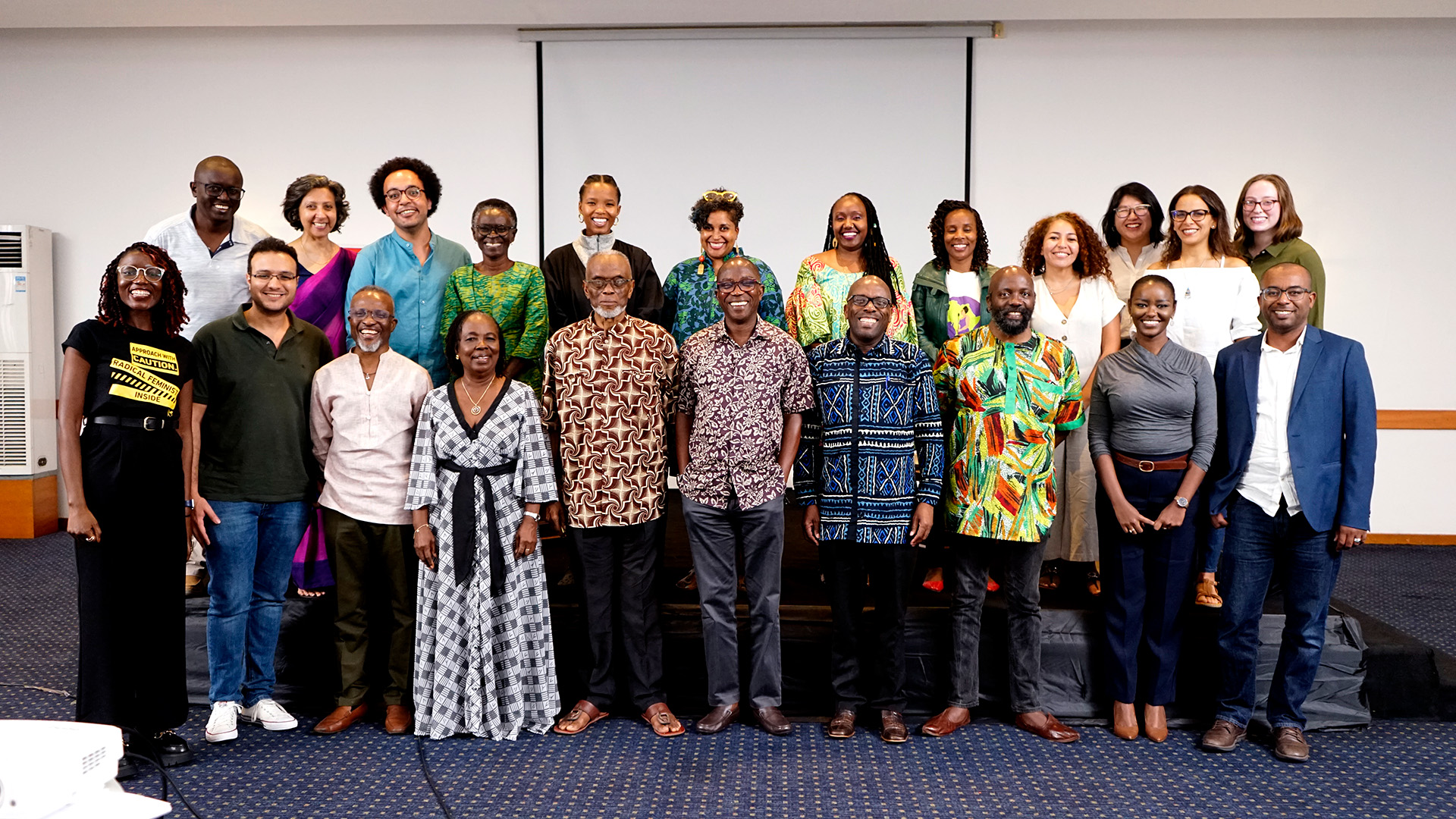Between 20 and 24 September 2023, the Post-Colonialisms Today project– housed at Regions Refocus– and Third World Network-Africa convened a five-day political exchange. The convening took place in Accra, Ghana, and brought together a range of actors from different movements, sectors, and generations who are involved with contemporary struggles for African political and economic agency, and progressive alternatives to neoliberalism in Africa. The convening served as an in-person launch of our Post-Colonialisms Today publication, “Lessons to Africa from Africa: Reclaiming Early Post-independence Progressive Policies,” as well as a platform for exchanges around Africa’s contemporary development challenges, from monetary dependence to agricultural transformation, industrialisation, climate policy, and mineral extraction.
The first day of the political exchange began with a welcome session (chaired by Crystal Simeoni), in which Yao Graham and Tetteh Hormeku-Ajei explained the program rationale and Anita Nayar introduced participants to the PCT project. Session One showcased the relevance of the post-independence era to contemporary development challenges in Africa through key findings contained in PCT’s special issue of Africa Development. Journal authors Tetteh Hormeku-Ajei, Jimi Adesina, Akua Britwum, Kareem Megahed, Omar Ghannam, and chair Saker El Nour presented highlights of their chapters on early post-independence ideologies, development planning, and industrialisation. Press attended the session, which served as an in-person launch of the publication. Later in the day, a conversation between Professor Akilagpa Sawyerr and three of his former students– panelists Yao Graham and Tetteh Hormeku-Ajei, and chair Takwiyaa Manuh– reflected on key strands of PCT’s analysis through Aki’s analytical contributions and praxis.
The second and third days of the political exchange consisted of thematic dialogues which addressed broader anti-colonial questions connecting to political economy and development. In Session Three, which was chaired by Heba Khalil, speakers Shadin Alfadil, Mamadou Goïta, and Kareem Megahed reflected on the underlying challenges of building the post-colonial state through the prism of coups in Africa– both current and historical– in their specific country context (Sudan, Mali, and Egypt, respectively). In the afternoon, Session Four explored how the collective agency of social movements, whose interests are marginalized, manifest through the lens of class and gender. Chaired by Ruth Nyambura, Tina Mfanga spoke on popular movements, Akua Britwum on gender, and Godfrey Kanyenze on class. Kicking off the third day of the political exchange, Session Five highlighted the ways in which the collective ideology of society, especially marginalized social groups, was expressed through cultural forms– including literature, art, music, and media– well beyond the formal ideology promoted by states in the immediate post-independence period. Panelists shared lessons from the early post-independence era for how to counter neoliberal hegemonic ideology today. Session panelists Chambi Chachage and Nombuso Mathibela spoke to popular media and music, respectively, while Parselelo Kantai was the session chair and a panelist, speaking to literature. The third day ended after lunch when participants broke off into separate group activities for the afternoon (visiting the Nkrumah Memorial, WEB Du Bois Center, and Aki’s home for an intimate interview, respectively).
The fourth day of the political exchange began with reflections on the group activities followed by strategic presentations by Omar Ghannam, Yao Graham, Saker Elnour, and Tetteh Hormeku-Ajei on industrialisation, the mineral economy, agrarian reform, and finance, respectively. Next, participants divided themselves according to their area of interest and split into groups chaired by Omar, Yao, Saker, and Tetteh for discussions around how to advance PCT’s work on these themes. After finishing these discussions and eating lunch, all participants reported back on their group discussions. The fifth and final day of the political exchange began with a session compiling the thematic strategies discussed in the group reports (in the below matrix). Participants gave additional suggestions to PCT for research, alliance building, and political education based on the past four days of discussion and on overlaps they identified with their own work (also in the below matrix). Just before lunch, a final closing session tied a bow on an incredibly thought-provoking and meaningful five days. Chairs Anita Nayar, Tetteh Hormeku-Ajei, Saker El Nour, and Omar Ghannam held a space for participants to express their thoughts and extended their sincere thanks to participants. Finally, all participants broke for lunch and shea shopping.








